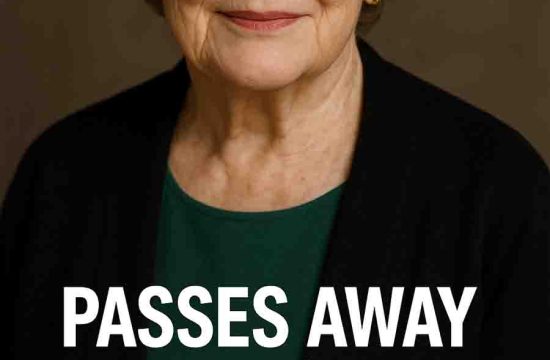In late 2025, President Donald Trump has taken a bold and controversial step: formally ordering military strikes, reclassifying the fight against drug cartels as a war, and pressing the U.S. military into roles that blur the line between domestic law enforcement and warfare. These moves mark a dramatic shift in the use of executive power and raise serious constitutional, legal, and geopolitical questions.
1. From interdiction to war: the operational shift
Naval deployments and strikes in the Caribbean
Throughout 2025, the Trump administration escalated its presence in the southern Caribbean, deploying naval and air assets to intercept drug-smuggling routes. On September 2, 2025, the U.S. Navy conducted an airstrike on a vessel alleged to belong to the Venezuelan gang Tren de Aragua, killing 11 people. That was only the start: subsequent strikes targeted other suspected smuggling boats, resulting in additional casualties.
These operations were not minor law enforcement actions. They were high-intensity military strikes, employing weapons and tactics more akin to armed conflict than interdiction at sea.
The formal war declaration: cartels as combatants
On October 1, 2025, President Trump formally notified Congress that the United States is in a “non-international armed conflict” with certain drug cartels. Under this framework, cartel members are to be treated as “unlawful combatants,” permitting the military to strike them under the law of armed conflict. The memo asserts that the U.S. must act in “self-defense and defense of others” against attacks by these designated groups. The White House, while downplaying that Trump had initiated a “war policy,” argued this was a legal clarification to justify existing and future operations.
Through this shift, the administration recasts drug trafficking not merely as criminal activity, but as an existential national security threat warranting war powers.
2. Constitutional and legal flashpoints
War powers and congressional oversight
Under the U.S. Constitution, only Congress may declare war. Yet historically, presidents have launched military operations under various authorizations (e.g., the Authorization for Use of Military Force, AUMFs). The problem is that Trump has not sought or secured new congressional authorizations for these cartel operations. Critics argue he is unilaterally expanding executive war powers.
Senators, civil liberties groups, and legal scholars question whether treating cartels as “unlawful combatants” subverts due process and the role of Congress. Some lawmakers propose legislative restrictions to check further executive military actions.
Domestic military deployment: Insurrection Act and Posse Comitatus
Beyond foreign strikes, Trump has threatened and initiated deployment of federal troops—including National Guard units—to U.S. cities under claims of restoring order. He has cited the 1807 Insurrection Act as authority to override state/local control. Courts have already blocked deployments (e.g., Portland) as inconsistent with federal law and constitutional protections. This raises confrontation with the Posse Comitatus Act, which limits the military’s role in domestic law enforcement.
Constitutional scholars say lodging active duty troops in cities to police civilians skirts dangerously close to militarization of civil society.
International law, sovereignty, and extrajudicial killing
When U.S. forces strike vessels or targets beyond its territorial borders, questions arise around state sovereignty, self-defense doctrine, and extrajudicial killing.
-
The strikes on Venezuelan vessels were conducted in international waters, allegedly targeting trafficking routes.
-
Venezuela has accused the U.S. of “murder” and warned of regime change ambitions. AP News+2The Sun+2
-
Legal analysts argue not every vessel on the high seas can be interdicted—justification rests on whether the target poses an imminent threat. Wikipedia Mary Ellen O’Connell, a law professor, warned the initial strike may violate both human rights and maritime law.
The administration’s legal justification rests on a yet-unreleased, classified DOJ opinion reportedly interpreting cartel groups as “enemy combatants.” Some worry this memo could permit indefinite, secret attacks without accountability.
3. Political and strategic ramifications
Domestic divisions and legitimacy
Trump’s decisions intensify already deep political polarization. Proponents praise his hardline stance against drugs and crime. Opponents warn of an authoritarian turn—using the military as a political tool against dissent and cities governed by opposing parties. Questions of legitimacy loom: if Congress and the courts are bypassed, does the executive branch overreach?
Regional and international impact
The strategy places the U.S. on a collision course with Latin American governments. Venezuela publicly condemns the attacks. Countries in the region may resist U.S. operations near their waters. The perception of U.S. aggression could provoke diplomatic backlash, or even proxy escalation. That said, analysts speculate the campaign’s real goal might be financial: disrupting the drug revenue stream that sustains corrupt Venezuelan elites.
Strategically, the U.S. military may find itself stretched. Using destroyers, drones, and warships against nimble traffickers is a mismatch in some respects. Observers wonder whether the campaign is sustainable or effective in the long run.
The precedent for future wars
What begins as a campaign against cartels could become a template for future use of military power: defining domestic threats as warfare, bypassing legislative oversight, and expanding the battlefield. Once the threshold is crossed, recalibrating toward restraint becomes politically difficult.
4. Toward the future: scenarios & stakes
Congressional pushback and legal checks
If Congress reasserts authority—refusing to fund or authorize further strikes—it could force a recalibration of the policy. Court rulings restricting domestic deployments could also slow the approach.
Escalation into state territory
If the U.S. begins targeting cartel bases on foreign soil (e.g. inside Venezuela or Mexico) without consent, the risk of open state conflict, retaliation, and diplomatic crisis rises dramatically.
Entrenchment of executive war powers
Absent pushback, future presidents—regardless of party—might inherit expanded leeway to wage secret wars whenever they brand a threat as “unlawful combatants.”
The stakes are profound: the U.S. may forever blur the boundary between law enforcement and war, risking civil liberties, constitutional balance, and global order.
Conclusion
When a president “orders war,” it is not merely a rhetorical turn—it redefines the role of the executive, the reach of the military, and the protections of citizens (both foreign and domestic). Donald Trump’s current strategy—strikes in the Caribbean, formal war declarations against cartels, domestic deployments under the Insurrection Act—marks one of the most audacious expansions of presidential power in recent memory.
Whether this new war paradigm endures, or whether Congress, the courts, and civic backlash rein it in, will shape the contours of U.S. governance and global norms for years to come.











